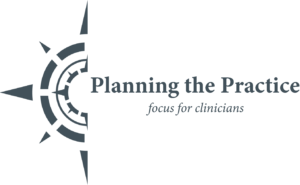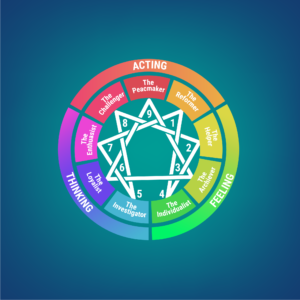
My Enneagram and How it Shows
When I first heard about the Enneagram my daughter kept calling me a number when she heard me say certain things. I asked her what she was talking about and was introduced to a simple personality typing tool. I did not think much of it at the time. In fact, seeing the visual representation of the Enneagram had me thinking one group I am associated with will make inaccurate assumptions. At the time I wasn’t interested enough to read more about it.
Around the same time, I was listening to a great podcast, Lead to Win, by Michael Hyatt and Meagan Hyatt-Miller. One particular episode they were talking about hiring practices and some of the assessments they used. One was the Enneagram. I was intrigued and checked out their source for the assessment. Ian Morgan Cron, author of the Road Back to You provides the iEQ9 Enneagram Assessment. I took the Pro because, well, why not? I wanted to know as much as possible about myself through the language of the Enneagram.
Win, by Michael Hyatt and Meagan Hyatt-Miller. One particular episode they were talking about hiring practices and some of the assessments they used. One was the Enneagram. I was intrigued and checked out their source for the assessment. Ian Morgan Cron, author of the Road Back to You provides the iEQ9 Enneagram Assessment. I took the Pro because, well, why not? I wanted to know as much as possible about myself through the language of the Enneagram.
From the multitude of all the other personality assessments I have taken over the years, I had a pretty good idea of where I may fall on the Enneagram typology. I was right! I am a Quiet Specialist or 5. Because I can’t rewrite it any better, I am going to paste the Motivation section of my report:
This style stems from the motivational need to understand. As an Ennea 5 you are likely to value making sense of the world around you and as a result conserving resources, objectivity and knowledge is important to you. You strive for independence and appreciate privacy and expertise. At your best others experience you as visionary and mindful. You offer the gift of non-attachment to yourself and the world around you. At your worst others may experience you as intellectually arrogant and disconnected from your heart. This stems from a need to retreat into the mind to avoid being engulfed or intruded on.
While in general I wasn’t surprised at my typing I was caught off guard by the language used in this section as well as others to describe my blind spots. Specifically, “At your worst others may experience you as intellectually arrogant and disconnected from your heart”. I wasn’t caught off guard because this seemed unlike me, no! It was more because it accurately described something I knew about myself but had never had the words to describe to others.
I remember when I was in graduate school, working on my doctorate and teaching a lifespan human development course. I loved that course! I despised and still do, teaching evaluations. The vast majority of them do not accurately assess the course content or the teaching skills of the instructor. Instead, they are an opportunity for students to express their displeasure in things that are unrelated. While teaching that course, I once received a teaching evaluation that said, “I hate the way he drinks his hot cup of tea, like he’s better than everyone else”. No lie, that is a direct quote. Apparently, according to this student, I am not a good teacher because I drink hot tea in the morning to soothe my throat. I also remember another evaluation that simply said, “He is a pompous a**”. Go figure. Still, I tried to find something that is meaningful in everything I experience.
I also remembered a time before teaching, when I was working on staff at a large church. Somehow my love for all things technology became too widely known and I was given more duties than I had time for (pretty typical in ministry). While I don’t recall the exact situation, I do remember my wife telling me I needed to work on my attitude when I was at church. A church member had asked her why I was so mad all the time.
Back to my Enneagram…It is now clear to me that those who do not take time to get to know me will almost always see me as arrogant. In reality, I am knowledge driven rather than feeling driven. Because I know this about myself, I can work on it, but ask me a question and I will give you an answer based on the information I have not on how you or I are feeling. This sometimes, perhaps many times, comes across as relationally disconnected.
Often, I mentally retreat into my own mind and sometimes I get lost there for a bit too long. I once heard an interview on Ian Morgan Cron’s Typology where Elizabeth Evans mentions what happens when she looks away during a conversation that really resonated with me. She talks about it being like trying to access ‘files’ in her brain. I do that all the time too. Unfortunately, there is some psychology that explains to look away during a conversation means the person is lying. I was always frustrated with that because I wasn’t just trying to access information. The good thing is I know have a way to describe the behavior when I am talking with someone new. Thanks Elizabeth!
Right now, more than any other thing the Enneagram did for me was provide some language I didn’t have to help others understand more about me. I am positive that I still come across as pompous or arrogant but I try to be mindful and intentional about when I probably am and to do something different.
The other thing I do is to work to maintain the focus on myself and my journey. My opinions about the Enneagram may not be yours. However, I was fascinated to learn about its origins. Ian Morgan Cron writes a bit about its history in his book, The Road Back to You. In a recent email communication I received, Ian says,
We need to understand that the Enneagram is to be used for our own personal transformational journeys, not to change other people. People are made up of more than their personality, so don’t assume that because you know a person’s Enneagram type, you fully understand them or their range of competencies.
Check out his Enneagram Ethics: 7 Things NOT to Do When Using the Enneagram.
Do you use the Enneagram in your hiring practices or as a personal assessment tool? Head over to our Facebook Page and let us know how you utilize the Enneagram.